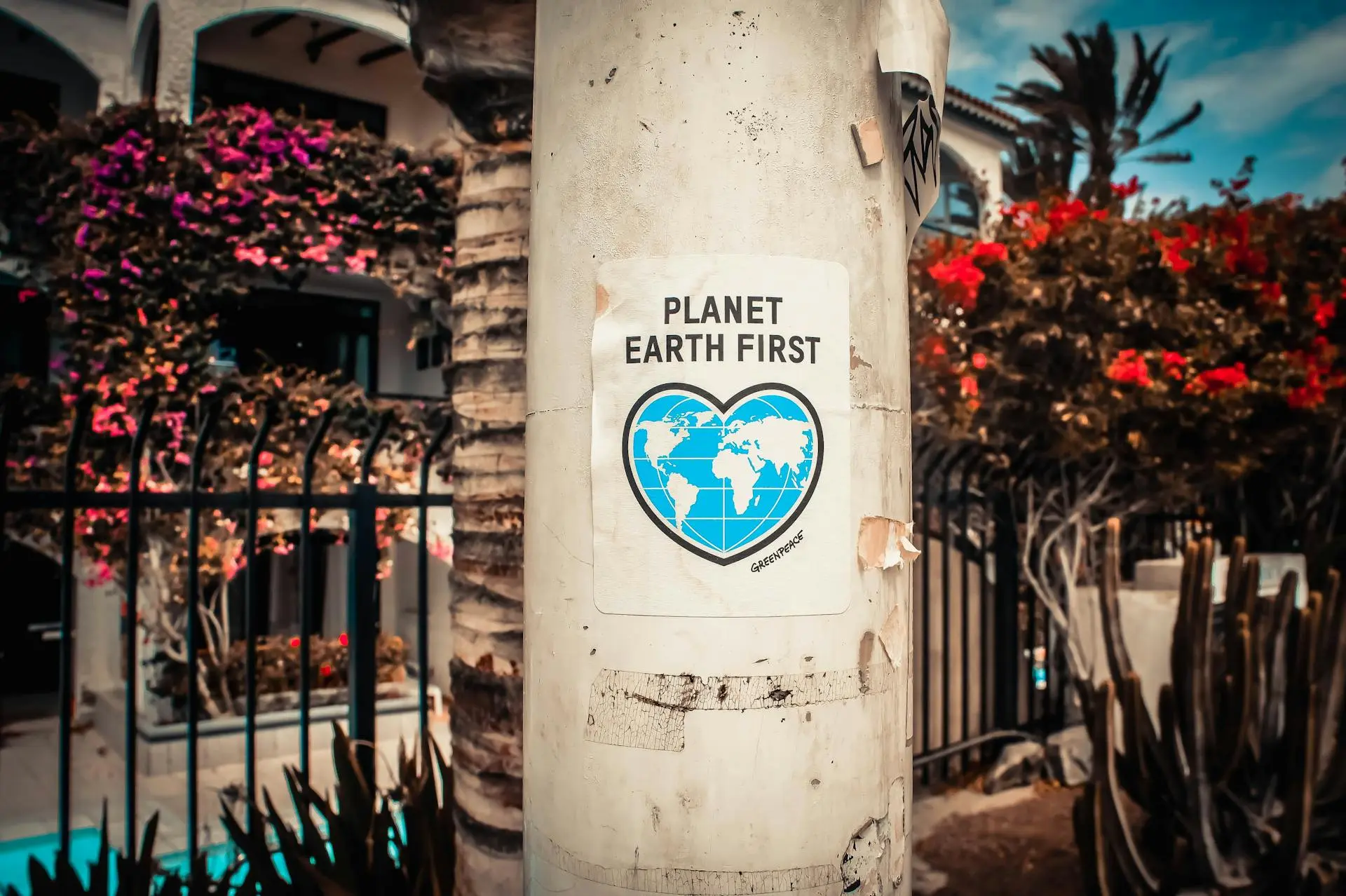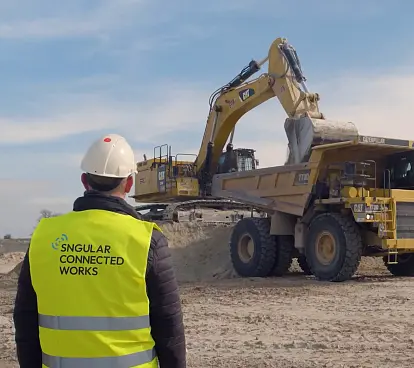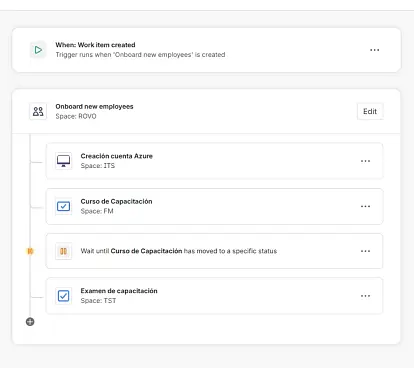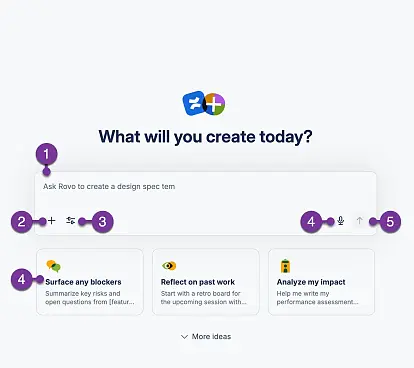
Leave a mark on people, not on the planet
April 16, 2024
Become a catalyst for change, transforming those who transform
I don't know anyone who goes for a walk in the mountains and throws a plastic bottle on the ground. Just like I don't know anyone who goes to the beach and throws potato chip bags or beer cans into the sand.
But there they are, we see them every day. It's surprising, and it generates discomfort for us.
Reading headlines like the one about three tons of trash being removed from the port of Sant Antoni, a town in Ibiza with less than 30,000 inhabitants, in just one morning of cleaning! makes us feel ashamed.
They don't appear out of nowhere, so it must be because someone does throw them. How is that possible?
There are many studies and much research trying to explain why this happens; of all the things I've read, I stick with four.
Mapping the social commitment
On one hand, there's the holistic vision of society. According to this explanation, "I," as an "individual," really have no capacity or impact: problems or solutions are achieved by the action of a "collective." So, a person who doesn't care about the environment does so because they assume that, as an individual, they can't do anything significant. Whatever they do is just a speck of dust, so whether they do it or not, it won't matter. Therefore, they take the most comfortable position.
However, the rational-individualistic vision precisely explains that the aggregation of individuals is what causes collective behavior to emerge. A person who isn't committed directly affects the collective's ability to achieve its goal.
Once this first barrier is overcome, the next is mental responsibility shifting. I have bad behavior, but it's because others did it before me, so even if my vision is rational-individualistic, it won't matter. Thus, the spiral of degradation continues. It's the famous Broken Windows theory, published by two police researchers. It's a narrative that is widely accepted as a model for explaining social behavior degradation, because it's mentally understandable. Apparently, part of it is based on poorly elaborated studies. That's the beauty of social sciences; any explanatory model can be defended and refuted in the same breath.
The next point of reflection is that none of this happens if a sense of commitment and responsibility hasn't been developed. We are getting closer to the heart of the matter. Awareness campaigns, actions in schools and high schools, volunteer programs, books, television, events, movies... Building a sense of commitment and responsibility takes time; it's a non-stop task. Personally, I experienced campaigns like "Pezqueñines no, gracias" and "Todos contra el Fuego" during my childhood, which was the national response to "We are the World". So those messages sank in.
And they sunk in because of one last detail: the physical connection with the environment. When we see, smell, touch... the consequences of our actions, when we connect with them physically, we can establish the causal relationship between a precedent and a consequence, even feel that we are the efficient cause in that relationship. So once that connection is established, and appealing to awareness and the rational-individualistic vision, we can develop new individual habits and behaviors that, when aggregated, bring collective change.

From the physical world to the era of non-things
Of course, all this is fine, but then comes the digital society, which is precisely based on the idea that people stop inhabiting the physical world to live through digital connections. Our experience of the real world is conditioned by the screen experience, with one difference: the experience of the real world is collectively created, subject to change by human hands and the laws of nature, therefore, arbitrary; whereas the screen experience is always intentional and directed by a design process.
In Non-Things (Taurus, 2021), the South Korean philosopher Byung-Chul Han reflects precisely on this disconnection with the physical surroundings, hence, with Nature. Three ideas from that essay seem particularly relevant to me:
"The earthly order, the order of the Earth, is composed of things that acquire lasting form and create a stable environment to inhabit (...) is being replaced by the digital order. Today, we find ourselves in the transition from the era of things to the era of non-things. It is information, not things, that determine the world in which we live". (Byung-Chul Han, op. cit.) This makes me think that turning real-world problems into data makes these problems lose value because turning them into data dilutes the impact of the problem, as they can be compared with other data and other magnitudes, who knows if at a different scale or of uncertain origin. We can see the images of pellets on the coasts of Galicia, or even collect them, but we can't know where the data justifying their irrelevance comes from, or that elsewhere it has been worse and nothing happens.
It's a consequence of having accepted the myth of "data kills narrative", which is still a narrative itself, but well.
"If the world is made up of available and consumable objects, we will not be able to establish a relationship with it" (ibid.) Indeed, Heidegger already warned in 1953 that "modern technology is a provocation that places nature under the demand to supply energy that can be extracted and stored as such" (The Question Concerning Technology, Herder, 2021) Taken to the extreme, we have come to consider Nature as something destined for our consumption; therefore, a relationship of use for our objective of transforming reality (which is also transformed to be able to make the transformation). Nature becomes something we participate in to achieve an experience, which begins, ends, and passes by; instead of seeing it as an end in itself. The relational asymmetry established between one who "consumes something" is very different from that of one who "works for something".
Finally, "digital communication destroys both closeness and distance by making there be no distances" (ibid.), which means that we lose sight of the context because it becomes unreal. Not only does the digital prevent us from connecting with the physical, but we also no longer know where the physical is, because it can be anywhere, so where it is becomes irrelevant and we lose sight of it.
We must work again from and for Nature
All this is important for those of us who live in the world of technology because the digital nature of digital work itself means that we are not linked to the consequences it has on the environment.
Both what we do and how we do it happen through keyboards and screens, and they become systems we access from screens, deployed nothing less than "in the cloud".
Lie: they are in data centers and server farms in industrial parks in the middle of the countryside.
In the digital profession, it coexists that we don't produce anything with our hands (because what we produce doesn't exist in the real world), nor do we know the consequences that production has on the environment. We don't know what we have had to extract from the earth to work, nor do we know the residue it has left after our creation, nor what is needed for someone to use the result of our work; therefore, we cannot feel owners of that work or its consequences.

Reconnecting with the Earth
Digital professionals have to reconnect with the Earth, and to do that, we have to develop our Responsible Digital Consciousness.
Thinking about how to do this, we have come up with creating a suite of services that have to do with the past, present, and future. With the past, because we believe it's fair to know how well or poorly we did things when we didn't have that responsible digital consciousness.
How sustainable was your code, for example? What is its complexity order? What resources does a server need to run it? And a client? Are you sure those who will use your systems always need to have the latest flagship phone? The latest chipset? Are you sure?
Remember that there's a probe in space since 1977 capable of reorienting its antenna and reconnecting with Earth by itself more than 19 billion kilometers away. Built with cutting-edge technology... from the 1970s.
I'm convinced that we develop systems that aren't efficient because we've embraced the abundance theory over coherence: the immediate, short-sighted economic impact of adding more RAM, or more processing power, or storage, is irrelevant compared to the mental effort or the ability to write better code.
This opens up a whole new category of Technical Debt, I hope the community can forgive us: it's for a good cause.
Also with the present, that is, with the technology you're designing or developing today. If you're a digital professional, in design, development, data, business, artificial intelligence... and you knew how to reduce the impact of your activity, how could you choose not to do it?
How could you throw a beer can on the beach?
And finally, with the future. With those systems or solutions that you haven't designed yet, but that you want to design. Again, the key is to transfer your responsible digital consciousness to all the things you're thinking of doing, to do them right from the start. From when they stop being an idea in your head and become a "something" in the real world.
Doing things wrong is always more expensive.
GAIA and the responsibility of digital professionals
At SNGULAR, we work to generate that digital consciousness. Our mission is to make you bigger. Empower you and accompany you to evaluate and enhance the positive impact of your project and profitability. We are the catalysts of change, transforming those who transform.
For this, we have created a suite of services that we have called GAIA, designed for digital professionals who want to leave a mark on people, not on the planet.
Do you want to lead the change? Let us know.
Our latest news
Interested in learning more about how we are constantly adapting to the new digital frontier?

Insight
December 26, 2025
Ferrovial improves heavy construction efficiency with Connected Works

Insight
December 22, 2025
How to implement Jira Service Management Journeys

Insight
December 15, 2025
How to use Rovo in Confluence: Guide to creating content with AI

Insight
December 9, 2025
Enhance your teams' user experience with Custom Onboarding for Atlassian Jira Cloud
